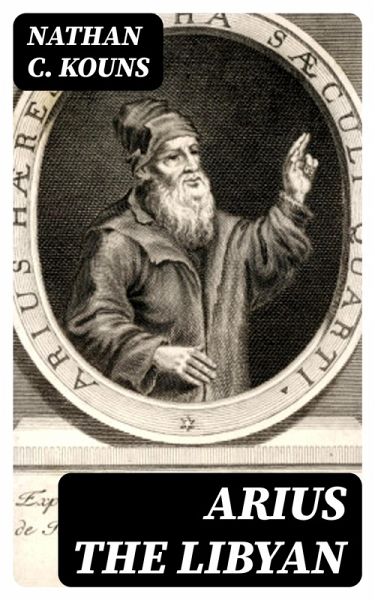
Arius the Libyan (eBook, ePUB)
A Romance of the Primitive Church
Versandkostenfrei!
Sofort per Download lieferbar
0,49 €
inkl. MwSt.
Weitere Ausgaben:

PAYBACK Punkte
0 °P sammeln!
In "Arius the Libyan," Nathan C. Kouns intricately weaves a compelling narrative that explores the life and theological contributions of Arius, a pivotal yet controversial figure in early Christian history. The book is rich in philosophical discourse, employing a narrative style that blends historical fiction with scholarly analysis. Kouns delves into the socio-political climate of the early 4th century, using extensive research to contextualize Arius's doctrines and their impact on the nascent Christian community, particularly the Arian controversy, which would shape Christian orthodoxy for c...
In "Arius the Libyan," Nathan C. Kouns intricately weaves a compelling narrative that explores the life and theological contributions of Arius, a pivotal yet controversial figure in early Christian history. The book is rich in philosophical discourse, employing a narrative style that blends historical fiction with scholarly analysis. Kouns delves into the socio-political climate of the early 4th century, using extensive research to contextualize Arius's doctrines and their impact on the nascent Christian community, particularly the Arian controversy, which would shape Christian orthodoxy for centuries to come. As a scholar deeply rooted in the study of early Christianity and theological debates, Nathan C. Kouns's insights are informed by both extensive academic knowledge and personal reflections on faith. His passion for uncovering the complexities of theological conflicts propels him to assess Arius not merely as a heretic but as a thinker engaged in a critical discourse on the nature of divinity. Kouns's background and rigorous research highlight the necessity of understanding historical perspectives in shaping modern Christianity. This book is a must-read for scholars, theologians, and those intrigued by the complexities of early Christian thought. Kouns invites readers to reconsider long-held perceptions of Arius, presenting him as a figure whose ideas continue to resonate in contemporary discussions about faith and doctrine. Through "Arius the Libyan," readers are encouraged to engage critically with the past, fostering a deeper understanding of the foundations of Christian belief.
Dieser Download kann aus rechtlichen Gründen nur mit Rechnungsadresse in A, B, BG, CY, CZ, D, DK, EW, E, FIN, F, GR, H, IRL, I, LT, L, LR, M, NL, PL, P, R, S, SLO, SK ausgeliefert werden.













